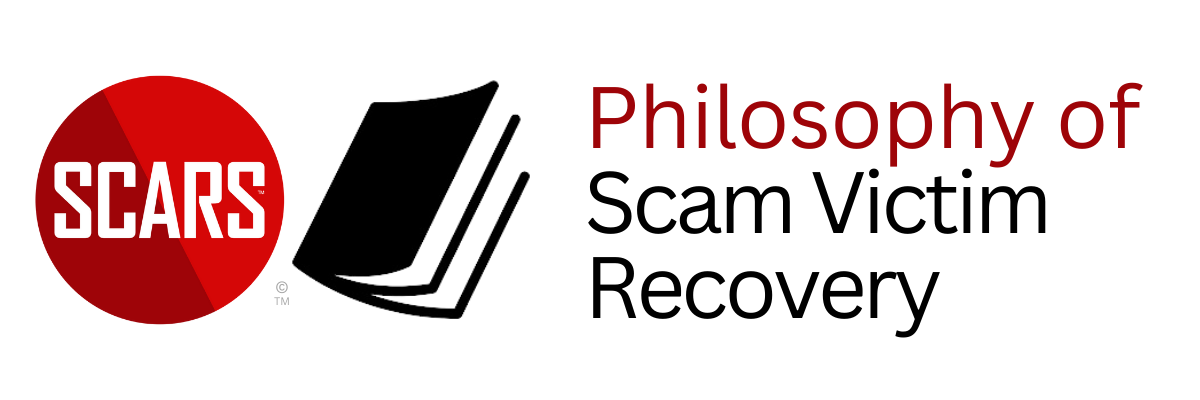Mono no Aware 物の哀れ – The Sadness of Letting Go
Mono no Aware 物の哀れ “The Pathos of Things” – The Quiet Sorrow of Letting Go, Applied to Scam Victim Recovery
Primary Category: Scam Victim Recovery Philosophy
Author:
• Tim McGuinness, Ph.D., DFin, MCPO, MAnth – Anthropologist, Scientist, Polymath, Director of the Society of Citizens Against Relationship Scams Inc.
About This Article
Mono no aware, the Japanese concept of quiet sorrow in the face of impermanence, offers scam victims a meaningful way to understand their emotional journey. Rather than viewing the end of a fake relationship as a failure, this perspective helps reframe it as a human experience shaped by vulnerability, trust, and emotional investment. The sadness, grief, and lingering attachment do not indicate weakness. They reflect the depth of a person’s capacity to love and believe. As victims begin to integrate this awareness, they allow themselves to grieve gently, accept transience, and reclaim their story with compassion. Recovery becomes less about erasing the past and more about walking forward with clarity, dignity, and a renewed sense of emotional truth.
Note: This article is intended for informational purposes and does not replace professional medical advice. If you are experiencing distress, please consult a qualified mental health professional.

Mono no Aware 物の哀れ “The Pathos of Things” – The Quiet Sadness of Letting Go, Applied to Scam Victim Recovery
Author’s Note
In the wide and deeply human experience of scam victimization and recovery, there exists a vast emotional and psychological landscape. Each victim’s journey carries its own complexities, shaped not only by the nature of the scam but also by personal identity, life history, cultural background, and readiness to engage with emotional truth. The work of educating victims is not just about information. It is about offering language, concepts, and frameworks that reflect the real pain, confusion, and strength within every person who survives deception.
Over time, those of us involved in this work have learned that recovery is never one-size-fits-all. Scam victims come from all walks of life, all parts of the world, and bring with them a wide range of responses, values, and learning preferences. Some seek structure and clarity, others need space for emotional exploration. Some look for answers, others look for connection. No single philosophy or psychological model can easily capture the whole truth of what scam victims face. For this reason, we introduce a variety of approaches and tools drawn from psychology, philosophy, sociology, anthropology, education, and trauma-informed recovery practices.
Our purpose is not to impose a path, but to offer maps. These maps include ideas you may not have considered or even been aware of before. They are invitations, not prescriptions. Each concept is meant to help you understand your experience with more clarity and less shame. We offer them because we believe recovery is not just possible, but worthy of your time, energy, and attention. After all, without recovery what do you have? A broken life without true hope.
If you are reading this and feel uncertain, confused, or disconnected, know that you are not alone. There are others who understand what you are facing. You have the right to healing and to explore the tools that best serve your individual journey.
Just remember, we are true experts in the work we do.
– Tim McGuinness, Ph.D.
Introduction to Mono no Aware
Mono no aware is a Japanese phrase that expresses the emotional awareness of impermanence. It can be translated as “the pathos of things” or “an empathy toward things,” but its meaning extends beyond simple translation. It describes the gentle sadness or wistfulness one feels when recognizing that all things, even those that are beautiful or joyful, will eventually pass. It is not despair, and it is not grief in the traditional sense. It is the feeling you might experience watching cherry blossoms fall, understanding that their beauty is tied to their transience.
This idea, rooted in classical Japanese aesthetics, acknowledges both the beauty and pain in the passage of time. It allows a person to hold joy and sadness at once, to feel the fullness of a moment while also accepting its inevitable end. It cultivates emotional sensitivity without collapsing into hopelessness.
When applied to the emotional experience of scam victims, especially those who have gone through romance scams, this concept can offer a meaningful framework. Victims who awaken from the dreamlike state of a false relationship must face the collapse of something they once believed in deeply. The pain that follows can feel overwhelming and directionless. Mono no aware helps shape that pain into something comprehensible, bearable, and even transformative.
The Emotional Collapse After the Scam Ends
The end of a romance scam or any online trust-based relationship is rarely clean. It is usually a moment of profound emotional collapse. What once felt real is revealed to be fiction. The person you believed you loved never existed. You might realize that the photos were stolen, the voice was faked, and the affection was strategic. You may look back on conversations that once brought warmth and now feel cold, mechanical, and transactional.
This recognition often arrives with a powerful flood of emotions: shame, confusion, anger, grief, betrayal, humiliation. These feelings do not follow a clear order. They cycle, repeat, and clash. The experience may also trigger cognitive dissonance and dissociation. You knew something was off, but part of you continued to believe. You hoped. You suspended disbelief because the fantasy offered something vital: companionship, love, meaning, or purpose.
The Emotional Crash and the Space for Reflection
That moment when everything falls apart often feels like a free fall. You may have been scrolling through messages, looking at photos, or hearing a voice you believed in. And then the truth arrived. The person you thought you knew vanished. That abrupt shift from presence to absence can leave you gasping for breath.
Immediately after, confusion and rage probably took over. You may have replayed every word, every gesture, hunting for evidence that you were wrong. You may have recoiled from people who tried to help. That visceral pain often masks deeper truths: this relationship, fabricated as it was, carried real emotion. The longing you felt mattered. The glimpses of connection were not fake to you.
That is where mono no aware becomes meaningful. It lets you see your feelings in their full complexity. You do not have to hate them or yourself. You can simply recognize: “This pain came from something real. And that is part of what it means to be human.”
Recognize the layers
Notice how your body reacts, not just the anger or the tears, but the subtle echoes of hope you once felt. You may catch yourself thinking: “I believed I was loved.” That belief was real, even if it was based on manipulation. The emotion itself deserves acknowledgment.
Allow gentle mourning
Grief does not have to be loud or overwhelming. It may be a soft ache at the back of your mind. Rather than dismiss that ache, give it permission to exist. Sit with it without trying to push it away. The gentle sadness becomes a container for healing. It makes space for compassion, both for your past self and for what you believed.
When being kind matters more than rage
Many recovery narratives stress anger or self-judgment. Mono no aware offers an alternative. It helps you accept that you were open and vulnerable. That is not failure. It is proof of your humanity. You loved despite the risk. That is strength, not weakness.
Understanding Transience and Your Emotional Response
Transience is at the heart of mono no aware. Nothing lasts forever, not joy, not pain, not deception. Often, this realization comes slowly, perhaps months or years after the fact. You might wake up one morning and realize you no longer feel triggered by a message or a reminder. That is transience in action.
Trusting that change happens helps you release pressure to “get over it.” Healing is not about flipping a switch. It is about moving forward, sometimes in tiny increments. Recognizing that both pain and clarity are temporary gives you permission to experience the moment you are in, without guilt or shame.
View emotional investment as evidence
Your emotional investment in the scam does not mark a failure. It shows you have the capacity to connect, to hope, to care. It proves you are human, not naïve or foolish. That perspective can shift your relationship with your own story.
Understanding recovery as a slow arc
Healing does not follow a straight line. You might feel stronger for weeks, then be triggered by a song, photo, or phrase. Transience reminds you that these ups and downs are part of a natural rhythm, neither regressions nor failures. There are seasons in your recovery.
Through the lens of this idea, you can say to yourself: “This feels heavy again. That is okay. It will shift in time.” You no longer treat pain as a sign that something has “gone wrong”. It becomes part of the ebb and flow of life beyond the scam.
Reframing Your Narrative Through Grief and Hope
Many victims tell themselves a story of failure, gullibility, or permanent damage. While those feelings are valid, they can also become prisons. Mono no aware encourages you to rewrite the narrative to something more nuanced.
Acknowledge what you gained
Even in a false relationship, you learned something about yourself. You showed care, curiosity, and openness. You may have healed from past wounds by believing in connection, even briefly. That is a gift, not a liability.
Recognize the sadness without being consumed
You may feel waves of regret or shame. You may even miss parts of what was real. Allow that, without assuming it means you failed. Let it exist alongside your resolve to move forward.
Hold both together
Mono no aware invites complexity. You can feel sorrow for what was lost while also feeling gratitude for what you survived. You can grieve the illusion and still refuse to define yourself by it.
Practices to Engage Mono No Aware in Recovery
Begin with writing
Write letters to your past self. You might say: “I remember how it felt to believe it, and that memory still lives with me.” Let your pen reflect both sadness and compassion.
Name the impermanence
When you feel grief or shame, label it. “This pain is like a wave. It will crest, and then it will fall.” Witness the movement without trying to hold it.
Cultivate gratitude for emotional openness
You can say: “I allowed myself to feel vulnerable, and that can be a source of strength.” Gratitude does not mean ignoring harm. It means acknowledging your ability to love and trust, even when it did not turn out well.
Share with others
When someone reaches out to hear what you went through, share both sorrow and insight. “I feel sad, yes. But I regret nothing about the depth I showed.” That kind of honesty builds a deeper connection and support.
Include rituals of release
Some people find it helpful to hold a small ceremony. Perhaps you write a farewell note to the illusion and then tear it up or burn it safely. That physical act brings closure that words alone cannot.
Integrating Transience Into Daily Life
Once you begin seeing your emotions through this lens, you may notice similar patterns across your life. Joy has passed. Pain has passed. That awareness helps you resist extremes. You no longer feel pressure to cling to what feels good or numb out what feels bad.
That balance becomes a foundation for trusting yourself again. You may feel more grounded, even if you still feel the occasional ache of memory. You learn to live knowing that fragility lies at the heart of life, and that you can stand in it.
A New Relationship With Pain and Memory
Pain does not define you. It is part of you. Memory becomes a portrait of what once was real. Loneliness does not equal weakness. It simply signals that something meaningful was present. By bearing witness with nonjudgment, you allow yourself to live fully with the past intact.
Peace is not silence. It is acceptance. It is knowing that you can hold both sorrow and hope. That you carried love, even when it was returned with falsehood.
Conclusion
Mono no aware offers a compassionate framework for understanding your recovery after a relationship scam. It does not erase the wrongdoing. Instead, it helps you see your emotions as human responses to impermanent experiences. It shows you that grief and grace are not opposites. They can coexist, and in that coexistence, you may discover a new kind of strength.
The emotional journey of scam victimization is rarely understood in its full complexity, especially by those who have never experienced it. For many victims, the trauma is not only about financial loss or deception. It is about what they invested emotionally, what they believed was real, and how they now must live in the aftermath of emotional disintegration. Mono no aware offers a meaningful path to navigate this emotional landscape. It does not offer a solution in the traditional sense. It offers understanding.
Recovery is not the sudden return to a previous version of yourself. It is a gradual transformation into someone who has endured, who now carries insight born from pain. Recognizing impermanence gives you permission to let go, not with bitterness, but with dignity. The sadness you carry is not a defect. It is part of being someone who once dared to believe, to hope, to connect. That hope mattered. It was genuine. The pain that followed does not erase it.
This quiet acceptance, the ability to feel grief without collapse, and to notice beauty even in the presence of loss, is what mono no aware allows. It helps you move from asking why did this happen to me? toward something gentler, like this happened, and now I choose how I carry it. That shift is powerful. It reclaims agency without rushing to closure.
You may still remember the voice, the messages, the promises. You may feel echoes of that attachment for years. This does not mean you are broken. It means you are human. The memories may visit, but they do not own you. You are allowed to feel their presence without being ruled by them.
By choosing to accept rather than resist, you begin to heal with honesty. Not by denying what happened, but by seeing it through wiser eyes. Mono no aware offers no shortcuts. It offers something more enduring: the ability to hold what was once real with respect, and to release it without hatred.
By recognizing that all things pass, for better and worse, you learn that you can survive illusion and reclaim your story. You emerge with a deeper awareness of your own capacity to love, to grieve, and ultimately to heal with kindness toward yourself.
You walk forward not by forgetting, but by allowing each step to matter, even the ones that ache. That is the beginning of peace.
-/ 30 /-
What do you think about this?
Please share your thoughts in a comment below!
Important Information for New Scam Victims
- Please visit www.ScamVictimsSupport.org – a SCARS Website for New Scam Victims & Sextortion Victims.
- SCARS Institute now offers its free, safe, and private Scam Survivor’s Support Community at www.SCARScommunity.org – this is not on a social media platform, it is our own safe & secure platform created by the SCARS Institute especially for scam victims & survivors.
- SCARS Institute now offers a free recovery learning program at www.SCARSeducation.org.
- Please visit www.ScamPsychology.org – to more fully understand the psychological concepts involved in scams and scam victim recovery.
If you are looking for local trauma counselors, please visit counseling.AgainstScams.org
If you need to speak with someone now, you can dial 988 or find phone numbers for crisis hotlines all around the world here: www.opencounseling.com/suicide-hotlines
Statement About Victim Blaming
Some of our articles discuss various aspects of victims. This is both about better understanding victims (the science of victimology) and their behaviors and psychology. This helps us to educate victims/survivors about why these crimes happened and not to blame themselves, better develop recovery programs, and help victims avoid scams in the future. At times, this may sound like blaming the victim, but it does not blame scam victims; we are simply explaining the hows and whys of the experience victims have.
These articles, about the Psychology of Scams or Victim Psychology – meaning that all humans have psychological or cognitive characteristics in common that can either be exploited or work against us – help us all to understand the unique challenges victims face before, during, and after scams, fraud, or cybercrimes. These sometimes talk about some of the vulnerabilities the scammers exploit. Victims rarely have control of them or are even aware of them, until something like a scam happens, and then they can learn how their mind works and how to overcome these mechanisms.
Articles like these help victims and others understand these processes and how to help prevent them from being exploited again or to help them recover more easily by understanding their post-scam behaviors. Learn more about the Psychology of Scams at www.ScamPsychology.org
SCARS INSTITUTE RESOURCES:
If You Have Been Victimized By A Scam Or Cybercrime
♦ If you are a victim of scams, go to www.ScamVictimsSupport.org for real knowledge and help
♦ SCARS Institute now offers its free, safe, and private Scam Survivor’s Support Community at www.SCARScommunity.org/register – this is not on a social media platform, it is our own safe & secure platform created by the SCARS Institute especially for scam victims & survivors.
♦ Enroll in SCARS Scam Survivor’s School now at www.SCARSeducation.org
♦ To report criminals, visit https://reporting.AgainstScams.org – we will NEVER give your data to money recovery companies like some do!
♦ Follow us and find our podcasts, webinars, and helpful videos on YouTube: https://www.youtube.com/@RomancescamsNowcom
♦ Learn about the Psychology of Scams at www.ScamPsychology.org
♦ Dig deeper into the reality of scams, fraud, and cybercrime at www.ScamsNOW.com and www.RomanceScamsNOW.com
♦ Scam Survivor’s Stories: www.ScamSurvivorStories.org
♦ For Scam Victim Advocates visit www.ScamVictimsAdvocates.org
♦ See more scammer photos on www.ScammerPhotos.com
You can also find the SCARS Institute’s knowledge and information on Facebook, Instagram, X, LinkedIn, and TruthSocial
Psychology Disclaimer:
All articles about psychology and the human brain on this website are for information & education only
The information provided in this and other SCARS articles are intended for educational and self-help purposes only and should not be construed as a substitute for professional therapy or counseling.
Note about Mindfulness: Mindfulness practices have the potential to create psychological distress for some individuals. Please consult a mental health professional or experienced meditation instructor for guidance should you encounter difficulties.
While any self-help techniques outlined herein may be beneficial for scam victims seeking to recover from their experience and move towards recovery, it is important to consult with a qualified mental health professional before initiating any course of action. Each individual’s experience and needs are unique, and what works for one person may not be suitable for another.
Additionally, any approach may not be appropriate for individuals with certain pre-existing mental health conditions or trauma histories. It is advisable to seek guidance from a licensed therapist or counselor who can provide personalized support, guidance, and treatment tailored to your specific needs.
If you are experiencing significant distress or emotional difficulties related to a scam or other traumatic event, please consult your doctor or mental health provider for appropriate care and support.
Also read our SCARS Institute Statement about Professional Care for Scam Victims – click here
If you are in crisis, feeling desperate, or in despair, please call 988 or your local crisis hotline – international numbers here.
More ScamsNOW.com Articles
A Question of Trust
At the SCARS Institute, we invite you to do your own research on the topics we speak about and publish. Our team investigates the subject being discussed, especially when it comes to understanding the scam victims-survivors’ experience. You can do Google searches, but in many cases, you will have to wade through scientific papers and studies. However, remember that biases and perspectives matter and influence the outcome. Regardless, we encourage you to explore these topics as thoroughly as you can for your own awareness.















![NavyLogo@4x-81[1] Mono no Aware 物の哀れ - The Sadness of Letting Go - 2025](https://scamsnow.com/wp-content/uploads/2025/04/NavyLogo@4x-811.png)










![scars-institute[1] Mono no Aware 物の哀れ - The Sadness of Letting Go - 2025](https://scamsnow.com/wp-content/uploads/2025/04/scars-institute1.png)

![niprc1.png1_-150×1501-1[1] Mono no Aware 物の哀れ - The Sadness of Letting Go - 2025](https://scamsnow.com/wp-content/uploads/2025/04/niprc1.png1_-150x1501-11.webp)